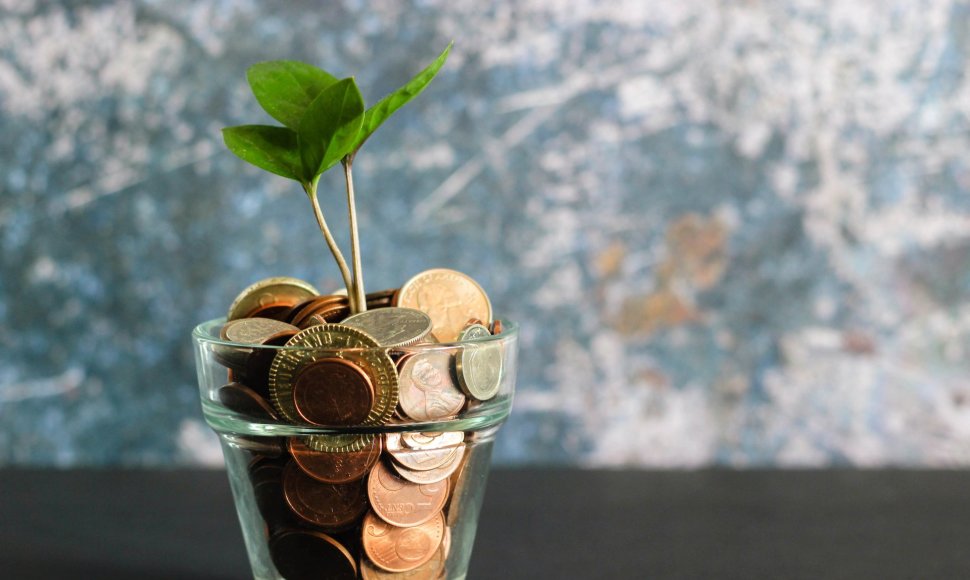Sustainability as a way of thinking
Šarūnė Smalakytė, Head of ROCKIT, a FinTech and Sustainable Innovation Centre, said that the start-ups they work with are already getting enquiries about the sustainability of their activities from potential investors.
“Investors are scouring the globe for good ideas and talented teams with a particular focus on sustainability. The Rockit Impact Accelerator that we have developed shows that Lithuanian start-up companies are generating interest from a very diverse range of investors. We have received attention from more than ten countries ranging from Europe to the U.S. Such examples are really inspiring and further confirm the importance of encouraging start-up companies to create new solutions, to grow and to continue learning. We are happy being able to contribute to these efforts with our day-to-day activities,” Š. Smalakytė said.
The Innovation Centre ROCKIT is presenting its sustainability report which contains the analysis of the ecosystem of the centre itself as well as that of its members. The analysis has shown that the FinTech sector is, in terms of its inherent characteristics, very akin to the United Nations Sustainable Development Goals as it operates using innovative technology in the field of finance. This promotes transparency, safety and efficiency and contributes to the pursuit of at least some of the Sustainable Development Goals of the UN such as partnerships for the goals, responsible consumption and production, quality education and promoting industrial progress and innovation.
The report also indicates that the FinTech sector is contributing very significantly to the pursuit of the Sustainable Development Goal No. 10 which is aimed at reducing all forms of social and financial inequalities and ensuring equal opportunities to participate in labour market as well as political and public life. In today’s world, many people still do not have equal access to financial services. The FinTech companies brought together by ROCKIT are often able to offer lower prices and provide opportunities for those who find traditional financial solutions unsuitable for them. Experts emphasize that this provides greater choice for both people and businesses.
A warning to watch out for greenwashing practices
The ROCKIT Sustainability Analysis points out that the FinTech companies operating in Lithuania have some untapped potential to engage more actively in public education and to contribute to the Sustainable Development Goal No. 4 which aims to ensure inclusive and equitable quality education and promote lifelong learning opportunities for all. Experts have also observed that there are still great opportunities to contribute to the pursuit of the Sustainable Development Goal No. 13 which aims to take urgent action to combat climate change, to prevent extreme weather phenomena and to prepare for the impacts caused by them.
Dominykas Stankevičius, representative of the Launchpad Capital, a venture capital fund, said that there are some cases in the market where companies looking for investors tend to talk a lot about sustainability without actually doing anything about it. This practice is known as “greenwashing”.
“I believe that the practice of greenwashing may become more prevalent in the future, but you cannot deceive your customer for a long time as in the long run they will notice a mismatch between your words and your actions. We now have a situation where it is difficult to tell which businesses are actually sustainable. On the other hand, this may offer an opportunity for future businesses. They could use available data to develop tools that would help identify and evaluate the real sustainability status and greenness of the company. There is a huge demand for this,” D. Stankevičius said.
According to him, sustainability becomes a particularly important criterion when developing business and looking for investors but one must remember that business ideas must be based on business logic and have potential for profitability.
A multitude of voices and carbon offsetting
The report indicates that the ROCKIT Innovation Centre itself is making comprehensive efforts to achieve sustainability in the day-to-day operations of the organisation. For example, it tries to ensure speaker diversity when organising events, taking into account their country of origin and the diversity of topics to be discussed. The greatest emphasis is placed on gender equality as attempts are made to ensure equitable inclusion of both men and women. Also, the organisation aims to ensure that the speakers represent a diverse range of experiences and both private and public sectors, that they come from different organisations and are actively involved in discussions to achieve the best results.
“It is important to not only assess the positive impact that the company makes on society or the environment, but also the negative impact which occurs as a result of our daily activities and use of resources. We have measured the carbon dioxide emissions that we produce as an organisation and we have offset our carbon footprint. We are happy having been able to contribute to the activities of the Wetland Restoration and Protection Fund which works on restoring and increasing the local biological diversity in the Lithuanian wetlands,” Š. Smalakytė said.
You can download Rockit Impact Report by clicking here.












